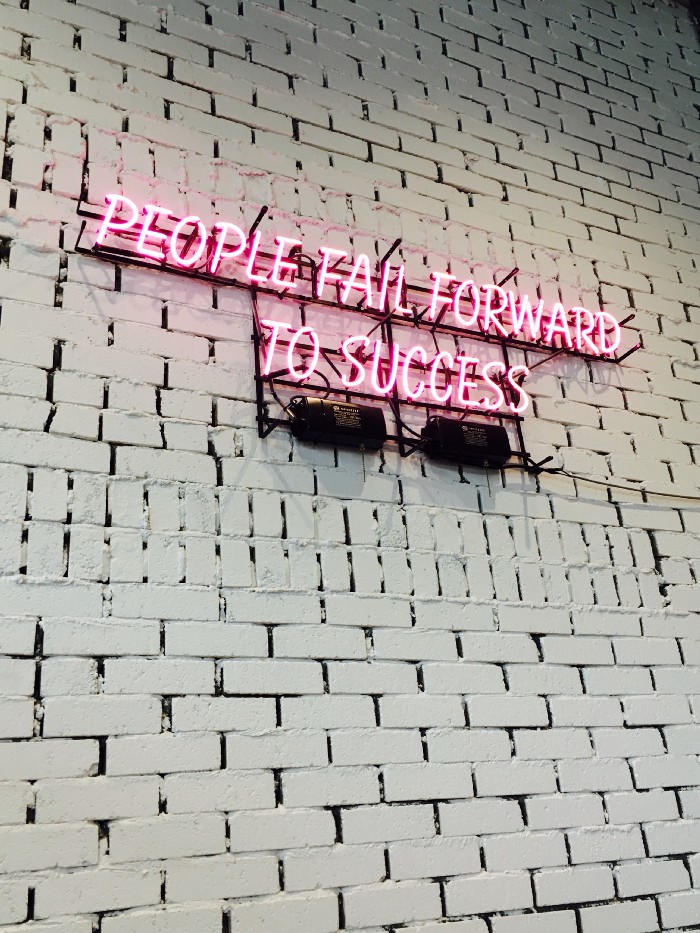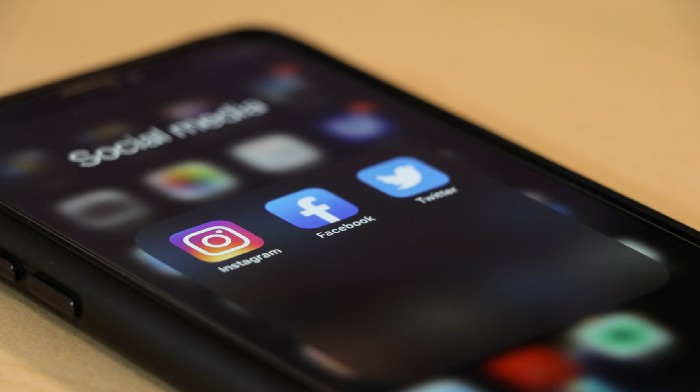
Five irreplaceable tools for growth
This way of thinking inspires innovation and creativity

What do Colonel Sanders and Babe Ruth have in common? They both have a passion and a clear vision for what they wanted to do and knew that the only way to get there was through failure.
Colonel Sanders was an entrepreneur who didn’t become a professional chef until he was 40-years old, didn’t franchise Kentucky Fried Chicken until he was 62-years old, and didn’t become an icon until after he sold his company at 75-years old.
Sanders realised during his early years that he would rather work all day than go to school, according to the New Yorker. His Mom remarried when he was twelve. Because his new stepfather didn’t like boys around, Sander’s Brother was sent to live with an Aunt while he was sent to work on a farm about eight miles away.
Sanders dropped out of school in the seventh grade. In addition to a stint in Cuba with the army, Sanders spent the first half of his life working a series of odd jobs, including stoking the steam engines of trains throughout the South, selling insurance, selling tires, making lighting systems, and operating a ferry boat.
His breakthrough came in 1939 when he found that frying his chicken and its signature ‘eleven herbs and spices’ in a new device, a pressure cooker (different from the ones used today), resulted in the ideal consistency he had been looking for.
Sander’s restaurant enjoyed great popularity over the next decade, and in 1950 the Governor of Kentucky named him Colonel, the highest title of honor the state can give. Things were going great, but when a new interstate bypassed Sander’s restaurant, it spelled doom. He sold the location at a loss in 1956, leaving his one hundred and five dollars monthly social security check as his only income. Sanders then decided that he was not going to settle for a quiet retirement. The Colonel decided to dedicate himself fully to franchising the brand.
By 1963, Sanders was fielding franchise requests without having to put in the legwork, and had more than six hundred restaurants across the U.S. and Canada selling Kentucky Fried Chicken.
After much persuasion, Sanders agreed to sell his rights for two million dollars. The story of Colonel Harland Sanders is an example of how perseverance, dedication, and ambition along with hard work can create success; regardless of your age and the number of times you may have failed.
Babe Ruth was famous for hitting 714 home runs during the course of his baseball career. His remarkable homerun record stood from 1935 until it was finally surpassed by Hank Aaron in 1974. Like many of us, and certainly like Colonel Harland Sanders, babe Ruth knew what it was like to experience failures and setbacks.
Many people are not aware that Babe Ruth also held the record for the most strikeouts. When the Babe retired in 1935, his career 1330 strikeout record was not broken until 1964, by another baseball great, Mickey Mantle.
The most Ruth struck out in a season was 93 times in 1923, yet this was also the year he hit 41 home runs and batted .393. When asked how he hit so many homeruns, he replied, “I swing as hard as I can…. I swing big with everything I’ve got. I hit big or I miss big. I like to live as big as I can.”
What was Babe’s secret of success? It really wasn’t a secret because he shared it with anyone who asked. He would say, “Never let the fear of striking out hold you back.” Babe Ruth knew he had to put up with temporary failures and setbacks in order to achieve his ultimate goal.
Babe Ruth was once asked by a reporter if he ever became discouraged by his many strikeouts. He said, “I just go up there and I swing. I just keep on swinging and I keep on swinging.” On another occasion, the Babe said, “I may have my faults, but giving up ain’t one of them.”
Both Colonel Harland Sanders’ and Babe Ruth’s secret of success was viewing mistakes and failures as learning opportunities.
How do you react when you make a mistake?
We can all learn something from both of these iconic figures: be patient, persevere and never give up. As Babe Ruth wisely observed, “It’s hard to beat a person who never gives up.”
Eliot Kelly is recognised as a serial Entrepreneur, and has been featured on CNN, BBC Three’s Be Your Own Boss and an extensive list of magazines and articles. His four books have been translated in over 7 languages and are sold in 29 countries, recently being shortlisted for Best Self-Help and Best Advice Books 2019 by The Author Academy. He is regarded as a top Sales, Business and Leadership Management Coach who creates opportunities for his success partner’s through financial literacy and life skills training. He is also a Professional Speaker and continues to inspire present and future entrepreneurs around the world. You Know More Than You Think You Do releases this Christmas! Pre-Order Today.

This way of thinking inspires innovation and creativity

Nobody knew who Elon Musk was before he started making millions. The world came to know him once he began winning. For example, did you know that PayPal, one of Elon Musk’s most successful companies, was voted as the worst business concept of the year?

Before spending money on your business, you will want to validate your products or services. You can do this in several ways including online and offline sampling and testing and through research. You can also validate your product/service by using Google Trends, Quora and Google Reader for example, to determine the popularity of the keywords associated with your business idea.

Steve Jobs once famously said, and I agree to an extent, that, “the only way to do great work is to love what you do.” Jobs continued that, “if you haven’t found it yet, keep looking. Don’t settle.” The part of Job’s quote that resonates with me the most is that I believe passion is what switches an individual from dormant and passive to activated. Critics of Job’s statement, get hung up on whether an individual can become great at something he or she does not necessarily love. To this argument, I have left mental space that if someone becomes great or is great at something, there is something they can love or do love about that task, be it direct or indirect. Instead of getting lost in the noise of the arguments surrounding the quote and the individual biases towards the man himself, I took the message to mean that when we show up, an entirely new world is made available to us.

In 2001, a skinny kid named Takeru Kobayashi devoured fifty hot dogs in 12 minutes — double the previous world record. The guy weighed a whopping 131 pounds. Yet he took down competitors three time his size and changed the sport forever.
How did he do it?
He did not just stuff hot dogs into his mouth faster than everyone else. Not even close. His massive success came from thinking strategically and going beyond the obvious. …

Unhealthy competition puts a disproportional amount of emphasis on the outcome, rather than valuing the process or the journey of success.
“Look to your left, look to your right: one of you won’t be here next year.” This intimidating line was immortalised as a greeting for incoming students at Harvard Law School in the classic movie, The Paper Chase. The message — hard work is needed to be here. The potential misinterpretation — your success occurs when others fail or that in a competition, others must lose if you are to win, and so it is natural to withhold…

This way of thinking inspires innovation and creativity

Nobody knew who Elon Musk was before he started making millions. The world came to know him once he began winning. For example, did you know that PayPal, one of Elon Musk’s most successful companies, was voted as the worst business concept of the year?

Before spending money on your business, you will want to validate your products or services. You can do this in several ways including online and offline sampling and testing and through research. You can also validate your product/service by using Google Trends, Quora and Google Reader for example, to determine the popularity of the keywords associated with your business idea.

Steve Jobs once famously said, and I agree to an extent, that, “the only way to do great work is to love what you do.” Jobs continued that, “if you haven’t found it yet, keep looking. Don’t settle.” The part of Job’s quote that resonates with me the most is that I believe passion is what switches an individual from dormant and passive to activated. Critics of Job’s statement, get hung up on whether an individual can become great at something he or she does not necessarily love. To this argument, I have left mental space that if someone becomes great or is great at something, there is something they can love or do love about that task, be it direct or indirect. Instead of getting lost in the noise of the arguments surrounding the quote and the individual biases towards the man himself, I took the message to mean that when we show up, an entirely new world is made available to us.

In 2001, a skinny kid named Takeru Kobayashi devoured fifty hot dogs in 12 minutes — double the previous world record. The guy weighed a whopping 131 pounds. Yet he took down competitors three time his size and changed the sport forever.
How did he do it?
He did not just stuff hot dogs into his mouth faster than everyone else. Not even close. His massive success came from thinking strategically and going beyond the obvious. …

Unhealthy competition puts a disproportional amount of emphasis on the outcome, rather than valuing the process or the journey of success.
“Look to your left, look to your right: one of you won’t be here next year.” This intimidating line was immortalised as a greeting for incoming students at Harvard Law School in the classic movie, The Paper Chase. The message — hard work is needed to be here. The potential misinterpretation — your success occurs when others fail or that in a competition, others must lose if you are to win, and so it is natural to withhold…
Will be used in accordance with our Privacy Policy